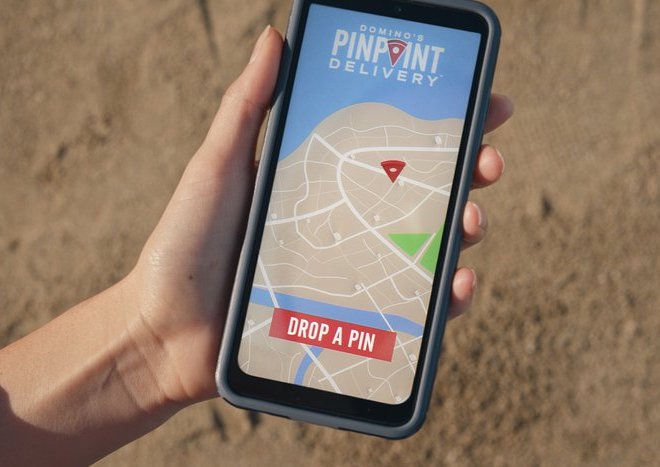
Domino’s now lets you order pizza to a GPS coordinate instead of an address.
It means that if you’re out of your house and are suddenly overcome with a strong desire for pizza, there’s another way to get one fast.
In an update to its app, Domino’s has added a feature that lets hungry customers simply drop a pin on a map to mark their location, with the popular pizza chain promising to deliver “nearly anywhere, including places like parks, baseball fields, and beaches, just in time for the start of summer.”
Domino’s new Pinpoint Delivery feature also lets customers track their order with Domino’s in-app Tracker by viewing their driver’s GPS location. It also offers an estimated time of arrival and sends out a text alert when it’s close by. It’s then a case of meeting the driver at the delivery spot, confirming your identity, and taking the pizza.
“Domino’s is proud to be the first quick-service restaurant brand in the U.S. to deliver food to customers with the drop of a pin,” said Christopher Thomas-Moore, Domino’s senior vice president and chief digital officer. “We’re always striving to make customers’ experiences even better and more convenient, and Domino’s Pinpoint Delivery does exactly that.”
The pizza company isn’t averse to using technology to enhance its ability to get its cheesy treat into the mouths of salivating customers, though some of its efforts were short-lived and looked more like marketing stunts.
Domino’s has, for example, experimented with delivering pizza using driverless cars and small wheel-based robots. In 2015, it reduced the speed of placing an order to mere seconds by letting customers send a single pizza emoji, and in 2019 it let you place an order from the comfort of your car using an Easy Order option on the vehicle’s touchscreen.
Editors' Recommendations
- Amazon now offers Fresh grocery delivery to those without Prime
- Drone delivery from this new location makes perfect sense
- Pinterest now lets you try on your pins in augmented reality
- CVS and UPS join forces for drone deliveries to customers’ homes
- Domino’s swerves around traffic by expanding its ebike pizza delivery service


